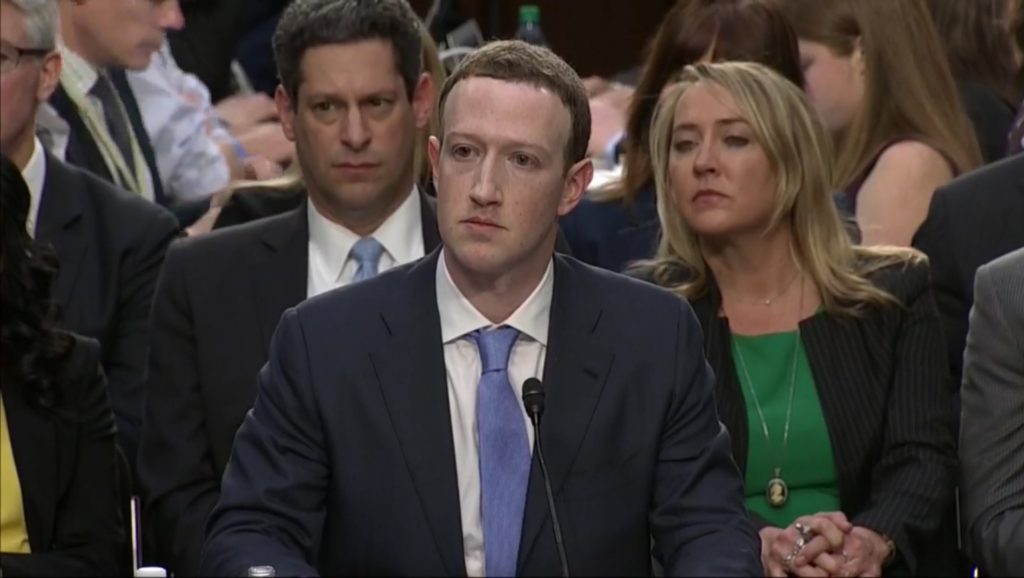Facebook CEO Mark Zuckerberg appeared before the US Congress in April, facing tough questions surrounding the social media site’s data handling practices. The founder has now made good on his promises to follow-up on the questions he expertly dodged during the hearing by submitting a 454-page report.
Both the 225-page PDF and the 229-page PDF offer little new information, often repeating details that Zuckerberg and his team have already given surrounding its ad practices and the Cambridge Analytica scandal, it did manage to clarify fears surrounding ‘shadow profiles’ and admitted that it sucks up data from third-party sites.
The term ‘shadow profile’ was coined to described Facebook’s potential data collection of those that haven’t signed up to the site or have since deleted their profile. Zuckerberg gets straight to the point in explaining that “Facebook does not create profiles for people who do not hold Facebook accounts.
“When the person visiting a website featuring Facebook’s tools is not a registered Facebook user, Facebook does not have information identifying that individual, and it does not create profiles for this individual,” reads page 83 of the report addressed to Chairman Chuck Grassley. These users, however, may come across a “general ad that is unrelated to the attributes of the person or an ad encouraging the non-user to sign up for Facebook.”
Those that do own an account and visit the same third-party sites powered by Facebook’s tech will find that their data is hoovered up, as the servers “automatically log (i) standard browser or app records of the fact that a particular device or user visited the website or app […] and (ii) any additional information the publisher of the app or website chooses to share with Facebook about the person’s activities on that site (such as the fact that a purchase was made on the site).”
Zuckerberg failed to defend his site against accusations of holding a monopoly in the social media space when he drew a blank trying to think of true competitors. The report splits Facebook’s services up in order to list direct competition, taking aim at Snapchat, YouTube and Twitter, among others, for those that are photo-focused, Apple’s iMessage, Skype and LinkedIn for instant messaging and Spotify, Amazon and Google for advertisement.
Interestingly, while none of these seem like a concrete competitor, since Facebook has its fingers in many pies, Snapchat is the only platform to have been mentioned across all categories, perhaps placing parent company Snap as Zuckerberg’s main rival. Even if this is the case, Snap would make up just one of the five largest competitors that Congress asked Facebook to list.
Delving into what information Facebook tracks specifically, particularly whether or not it tracks “every IP address ever used when logging into Facebook,” the company described its use of a vague “retention schedule.”
“Facebook automatically logs IP addresses where a user has logged into their Facebook account. Users can download a list of IP addresses where they’ve logged into their Facebook accounts, as well as other information associated with their Facebook accounts, through our Download Your Information tool, although this list won’t include all historical IP addresses as they are deleted according to a retention schedule.”
While Facebook has taken two months to compile these answers, controversy surrounding the social media site has not slowed down. Throughout that time, Facebook has been hit with a lawsuit for breaching the EU’s new GDPR just days after it was introduced and been accused of giving 60 big name companies across the United States and China “deep access” to user data.
KitGuru Says: It seems that Facebook and its users just can’t catch a break. Congress has yet to respond to the documents provided by Facebook, but there’s a lot to wade through. Do you think Zuckerberg and his team have provided enough answers?
 KitGuru KitGuru.net – Tech News | Hardware News | Hardware Reviews | IOS | Mobile | Gaming | Graphics Cards
KitGuru KitGuru.net – Tech News | Hardware News | Hardware Reviews | IOS | Mobile | Gaming | Graphics Cards



